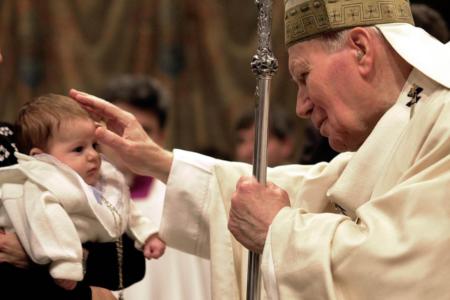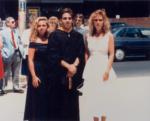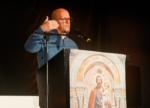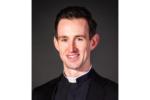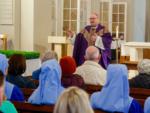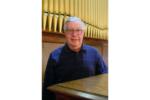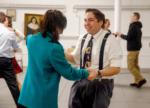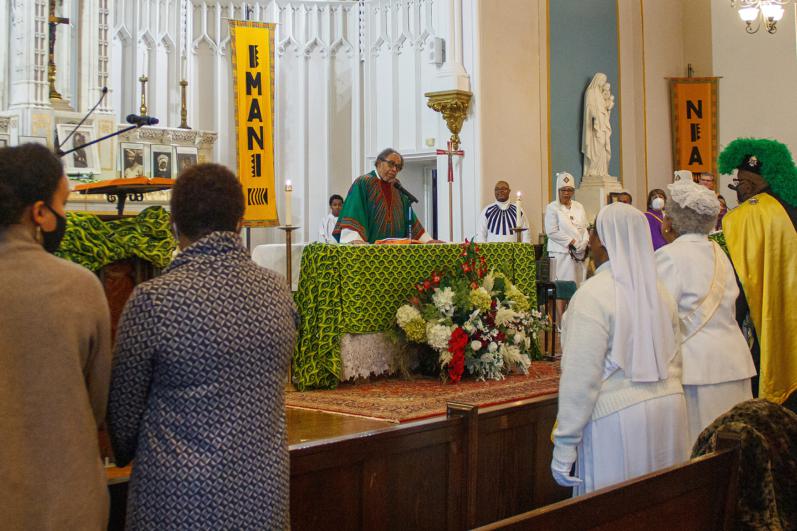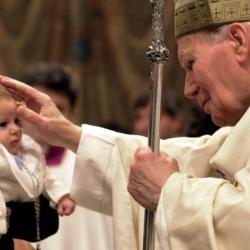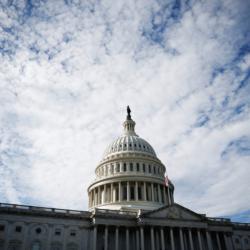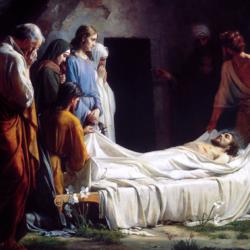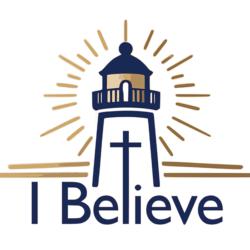Black History Month marked at St. Katharine Drexel Parish
ROXBURY -- As they began their observance of Black History Month, St. Katharine Drexel Parish held a special Sunday Mass on Feb. 5, with Father James Pierce, a Black Jesuit from New York, as the homilist.
Meyer Chambers, the parish's music director, had met Father Pierce a couple years earlier at a retreat organized by the Jesuit Antiracism Sodality (JARS). Father Pierce was one of the spiritual directors at the retreat, which combined Black spirituality with the spiritual exercises of St. Ignatius. Chambers invited Father Pierce to celebrate Mass at St. Katharine Drexel, wanting the community to hear the way he prayed and preached.
The parish typically has three Masses each Sunday, but for the special occasion, they were combined into a single Mass, with Father Pierce serving as the principal celebrant. Several knights and ladies of St. Peter Claver were present, and Chambers led the music with the Nigerian Catholic Community choir and the archdiocese's Black Catholic Choir. The pastor, Father Oscar Pratt, introduced Father Pierce to the assembly at the start of the Mass.
As he greeted them, Father Pierce said, "I didn't know it was going to be like this. I didn't know I was going to be coming home."
In his homily, Father Pierce talked about what it means to witness. He said that often, a person's witness is "not so much news as a reminder," as people gather and acknowledge their dependence on God.
"To talk and to listen is what witness turns out to be," Father Pierce said.
He also spoke about his own journey to the priesthood and the Society of Jesus. He shared a lesson he learned from a professor of the New Testament that has resonated in his life: "Surprise is a hallmark of the Kingdom."
When he was in high school, his father made him join the Newman Club, and he was invited to attend a retreat run by Jesuits. He was touched by their preaching, and he attended the retreat again the following year. That time, he found some vocation literature, and when it was his turn to speak with one of the Jesuits about his experience, he asked about the process of joining the order.
During his formation, Father Pierce took classes at Boston College from 1966 to 1967. A few years later, he moved to Chicago to pursue a master's degree -- and as soon as he arrived, he received a phone call from a Jesuit inviting him to a meeting of Black priests and religious.
"That's how I became a Black Jesuit," he told the assembly, who responded with applause.
Peter Uzoma, a lector in the Nigerian Catholic Community who attended the Mass, later said he thought Father Pierce's homily was "beautiful."
"What made it so beautiful for me (was) because it was his life experience. He brought the Gospel alive as to how God called him to become a Jesuit priest," Uzoma said.
The Mass concluded with a Prayer for the African-American and African Family, composed by Father Jim Goode, OFM.
As Black History Month continues, members of the St. Katharine Drexel community will share reflections after Communion. Their liturgical theme for this year is "Pilgrims Journeying Together in Love and Care."
Chambers noted that there are "a number of people that have significant theological knowledge in this parish."
"We have professors, we have people in formation, and ordained people. Then you have people who have been on the civil rights journey and have come at it from a very spiritual perspective," he said.
Lorna DesRoses, the archdiocese's evangelization consultant for ethnic communities, was also present at the Mass. Speaking to The Pilot afterward, DesRoses expressed her gratitude for everyone who helped organize the event.
When asked about figures in Black history that she looks up to, she named St. Josephine Bakhita, whose feast day was Feb. 8, as well as Sister Thea Bowman and Venerable Pierre Toussaint, two of the six Black Catholics whose causes for sainthood are currently under consideration.
"I think it's important for us to commemorate those who have gone before us and give thanks to God for their sacrifices. They were the pioneers. They were the trailblazers that allow us to be where we are today in many cases," DesRoses said.
